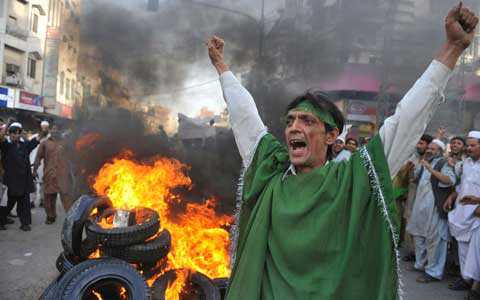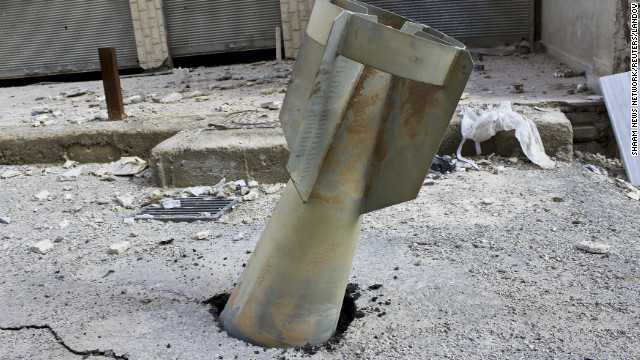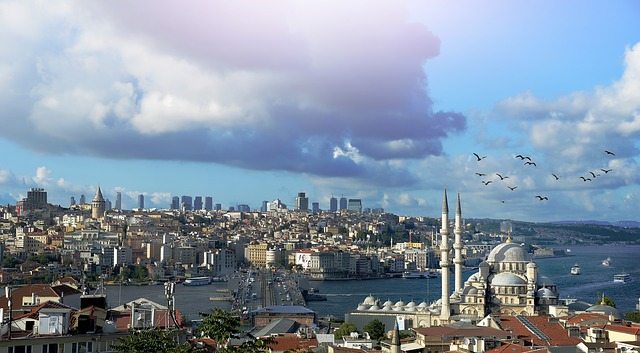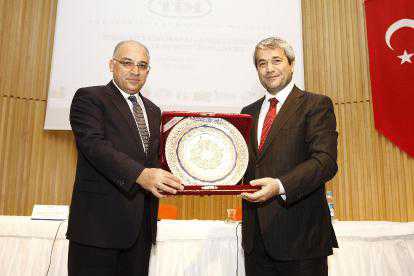By HOWARD CHUA-EOAN – 59 mins ago
“Secrecy is important for many things,” said WikiLeaks founder Julian Assange in an interview with TIME over Skype on Monday. Managing editor Richard Stengel had just asked him whether there were instances when secrecy could be an asset in diplomacy or global affairs. WikiLeaks has, of course, grabbed headlines the world over by making public U.S. diplomatic cables that were supposed to stay private and secret, embarrassing the State Department as well as leaders around the world. But secrecy has its place, said Assange. “We keep secret the identity of our sources, as an example, take great pains to do it.” But, he said, secrecy “shouldn’t be used to cover up abuses.” (Watch TIME’s video “WikiLeaks’ Assange on China’s ‘Reform Potential.’”)
Asked if he wanted to expose the secret dealings of China and Russia the way WikiLeaks has done with America, Assange said, “Yes, indeed. In fact, we believe it is the most closed societies that have the most reform potential.” He sounded heartened, if not overwhelmed, by the response to the megaleak so far. “The media scrutiny and the reaction are so tremendous that it actually eclipses our ability to understand it.” But he believed that there was a shake-up going on, adding that “there is a tremendous rearrangement of viewings about many different countries.” (See why Julian Assange wants Hillary Clinton to resign.)
In his 36-minute interview with TIME (the full audio will be available soon on TIME.com), Assange explained that exposing abuses can lead to positive change in two ways. When abusive organizations are in the public spotlight, “they have one of two choices.” The first, he said, “is to reform in such a way that they can be proud of their endeavors, and proud to display them to the public.” The second choice, he says, “is to lock down internally and to balkanize, and as a result, of course, cease to be as efficient as they were. To me that is a very good outcome, because organizations can either be efficient, open and honest, or they can be closed, conspiratorial and inefficient.” What he left unsaid but clearly implied was that organizations of the second type eventually fail.
And where does the U.S. fall between the two categories? He said, “It’s becoming more closed” as a society and its “relative degree of openness … probably peaked in about 1978, and has been on the way down, unfortunately, since.” That, he said, was a result of, among other things, America’s enormous economy, which calibrates power in the U.S. in economic, or as he says, “fiscal,” terms. He points out that, today, China may be easier to reform than the U.S. “Aspects of the Chinese government, [the] Chinese public-security service, appear to be terrified of free speech, and while one might say that means something awful is happening in the country, I actually think that is a very optimistic sign because it means that speech can still cause reform and that the power structure is still inherently political as opposed to fiscal. So journalism and writing are capable of achieving change and that is why Chinese authorities are so scared of it.” On the other hand, in the U.S. and much of the West, he said, “the basic elements of society have been so heavily fiscalized through contractual obligations that political change doesn’t seem to result in economic change, which in other words means that political change doesn’t result in change.” (See how the magazine of al-Qaeda was scooped by WikiLeaks.)
Assange appears to believe that the U.S. has not become “a much worse-behaved superpower” because its federalism, “this strength of the states,” has been a drag on the combination of the burgeoning power of the central government and a presidency that can only expand its influence by way of foreign affairs. (Given the same economic and geographical advantages as America’s, Russia, he says, would not have turned out as beneficent.) Still, though he cites the Bill of Rights approvingly, he is not overly impressed with the U.S. During the interview, when Stengel asked him about the idea of American exceptionalism, saying, “You seem to believe in American exceptionalism in a negative sense, that America is exceptional only in the harm and damage it does to the world,” Assange said those views “lack the necessary subtlety.” He does conclude, however, that “the U.S. is, I don’t think by world standards, an exception; rather it is a very interesting case both for its abuses and for some of its founding principles.”
Assange talked about WikiLeaks’ own founding principles – and the evolution of the original conception of how the online conduit for whistle-blowing documents would work. In the beginning, in 2006, given the huge amounts of raw, “quality, important content” the site was providing, he said, “we thought we would have the analytical work done by bloggers and people who wrote Wikipedia articles and so on.” Analyzing secret Chinese data or internal documents from Somalia, he said, was “surely” more interesting than blogging about “what’s on the front page of the New York Times, or about your cat or something.”
But, he said, “when people write political commentary on blogs or other social media, it is my experience that it is not, with some exceptions, their goal to expose the truth. Rather, it is their goal to position themselves amongst their peers on whatever the issue of the day is. The most effective, the most economical way to do that, is simply to take the story that’s going around, [which] has already created a marketable audience for itself, and say whether they’re in favor of that interpretation or not.” (Comment on this story.)
Instead, it is the people “funded after a career structure” that incentivizes analysis who are the primary consumers of WikiLeaks. “The heavy lifting – heavy analytical lifting – that is done with our materials is done by us and is done by professional journalists we work with and by professional human-rights activists. It is not done by the broader community.” The social networks come in only after “a story becomes a story,” becoming then “an amplifier of what we are doing.” He doesn’t denigrate the role of social networks or WikiLeaks’ need for them. In the ecological cycle of news on the Web and the world, they have become “a supply of sources for us.”
Yahoo






